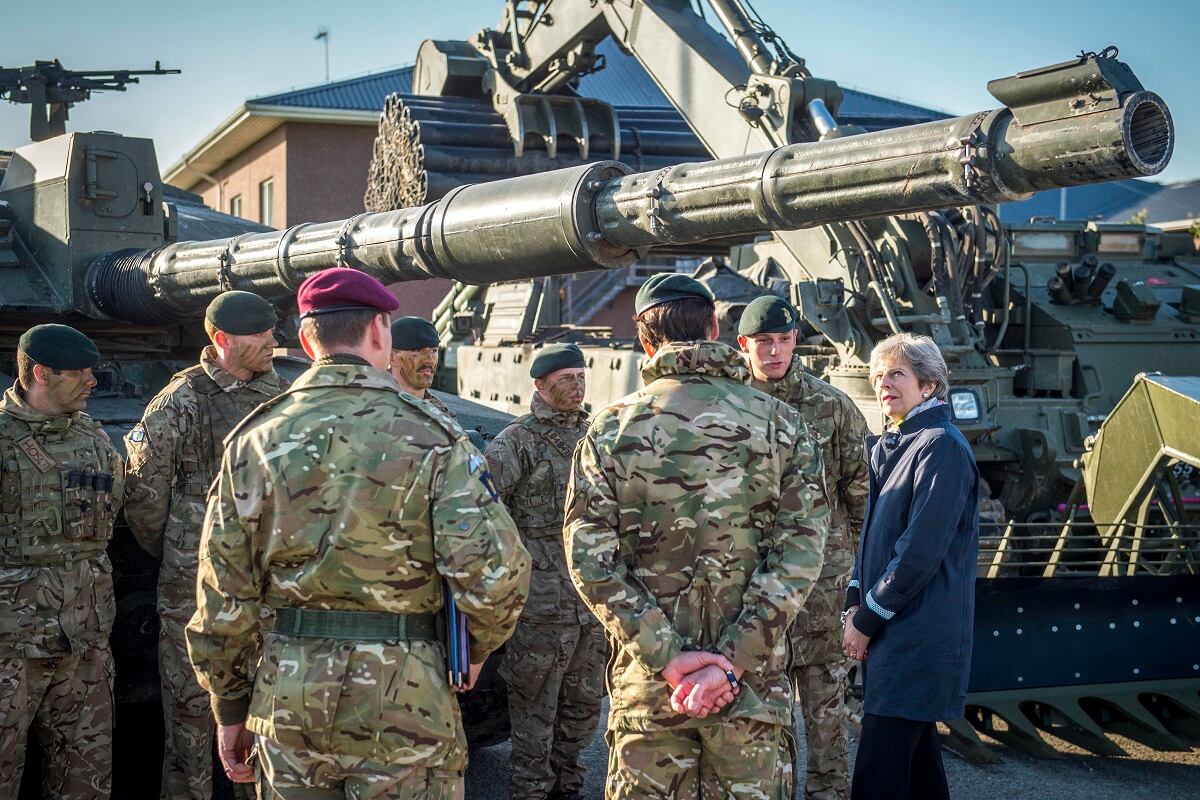ROME ― The head of Italian defense giant Leonardo has urged the U.K. and the European Union to stick together on defense projects after Britain leaves the EU. Otherwise, the company warned, Italy risks being sidelined in a Europe dominated by France and Germany.
Alessandro Profumo said he was “extremely worried” that a so-called hard Brexit might see the U.K. leave the EU with no trade deal in place, but said securing continued cooperation on the Galileo satellite program between Britain and the bloc might be the “catalyst” for getting a deal.
“Everything needs to be done so that the U.K. remains a partner in European defense,” he said.
The Leonardo CEO made his comments this week at a presentation at the company’s Rome headquarters. The event unveiled a research paper by Rome think tank IAI on what Brexit means for joint defense programs in Europe.
The paper outlines three scenarios for the break, starting with a deal allowing the U.K. to remain in a customs union with the EU, or forging an agreement granting similar ties, in which case European defense programs would not suffer.
RELATED

A second option would see the U.K. leaving the customs union and signing a lower-profile trade deal relying on existing arrangements such as the World Trade Organization. Defense deals will be possible, “but the partnership will be more tailored and complicated,” the paper stated.
The third, no-deal scenario involves the U.K. breaking from the EU, probably acrimoniously after talks breaks down for a post-Brexit settlement, leading to tariffs on trade, restrictions on technology transfer, higher costs and longer times for doing business.
“This is about defense economics, not politics. If you break the customs union you have a direct, negative impact on industrial cooperation and joint procurement,” Alessandro Marrone, one of the authors of the paper, said at the presentation.

The paper stated that a “major impact will be felt by European companies with a large footprint in the U.K.,” meaning Airbus, Thales and Leonardo, which has key electronics facilities in the U.K. and divides its helicopter operation between the U.K. and Italy.
At the presentation, Profumo said: “We have developed numerous programs with the U.K. like the Eurofighter, and we have 7,000 staff in the U.K. It’s an extremely complex organization, with, for example, helicopter parts going back and forth.”
One Leonardo official warned that while aircraft in the U.K. and Italy were now certified by the European Aviation Safety Agency, after Brexit the involvement of the U.K.’s Civil Aviation Authority would complicate matters.
Profumo said he was concerned that if the U.K. left the negotiating table at which future defense industry cooperation in Europe was negotiated, Italy would find itself on the sidelines of an ever-stronger collaboration between France and Germany.
“If the British disappear, we risk finishing underwater,” he said, adding Italy faced the possibility of picking up work on European programs only via offset packages, rather than being a top-level partner.
Added Marrone: “Until now there was choice of cooperating with France and Germany or the U.K. If there is no longer that choice, you lack leverage if you are the Netherlands, Spain or Italy.”
Profumo singled out the Galileo satellite program, which will give the EU an alternative to GPS, as a “catalyst” to keeping U.K.-EU cooperation on track. Britain has demanded to stay on board the EU program after Brexit, and Profumo backed the idea.
“We must decide how to give the U.K. a special status on the program and not treat it like a third party,” he said. “We need to work really hard on this.”
Tom Kington is the Italy correspondent for Defense News.







